Storing and Caring for Your Seasonal Wheels and Tires
In many parts of the US and Canada, it is common to have two sets of wheels and tires to tackle seasonal differences in driving conditions. You know what to do with them while they are on your car, but what is the proper way to store the ones you put up for the season? Here are some tips to ensure your seasonal tires are ready to go when it is time to swap them out.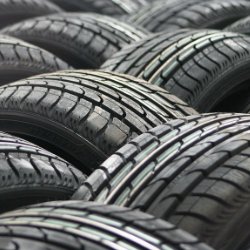
1. Clean Your Wheels - Contaminants and road grime can degrade the finish on your wheels while they are in storage. Before you put them away, clean your wheels with some mild detergent. Rinse them off and make sure they are completely dry before you put them away for the season.
2. Clean and Treat Your Tires - Tires are made of natural and synthetic rubbers and ...[more]
How to Find the Perfect Tire for Your Ride
Head into the showroom at any tire retailer and you will find a dizzying array of tire types, sizes, tread patterns and other variables that can have you turning right back around and heading the other way. The good news is a step-by-step approach to choosing the right tires for your car, truck or SUV with a little knowledge can make the process much simpler and give you great results.
The type of tire you need depends on what kind of vehicle you have, your driving style and the type of weather you must cope with in your area.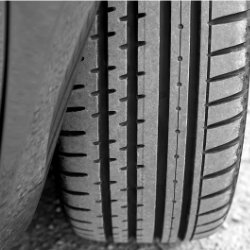
All Season Tires - Sometimes called Touring Tires, All Season Tires deliver good performance, handling and ride quality on dry, wet and moderately snowy roads. This is the most popular tire type and can be found on most four door sedans, ...[more]
Winter Safety Tips – Don’t End Up In the Ditch!

Winter Tires – Yea or Nay?
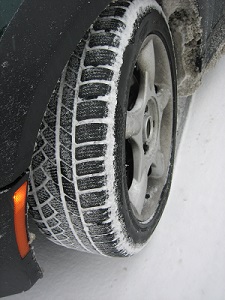
Winter Tires? Or All-Season Tires?

Don’t Forget Your Spare
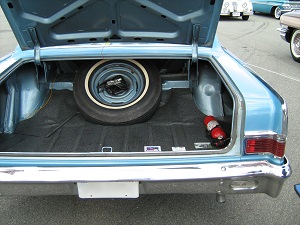
Determining the Age of a Tire
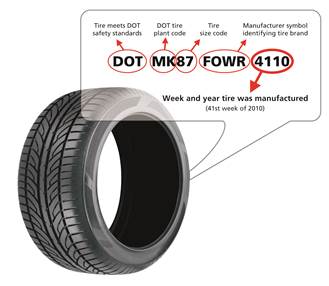 When it comes to determining the age of a tire, it is easiest to identify when the tire was manufactured by reading its Tire Identification Number (often referred to as the tire’s serial number or DOT number). Unlike vehicle identification numbers (VINs) and the serial numbers used on many other consumer goods (which identify one specific item), Tire Identification Numbers are really batch codes that identify several components.
When it comes to determining the age of a tire, it is easiest to identify when the tire was manufactured by reading its Tire Identification Number (often referred to as the tire’s serial number or DOT number). Unlike vehicle identification numbers (VINs) and the serial numbers used on many other consumer goods (which identify one specific item), Tire Identification Numbers are really batch codes that identify several components.


